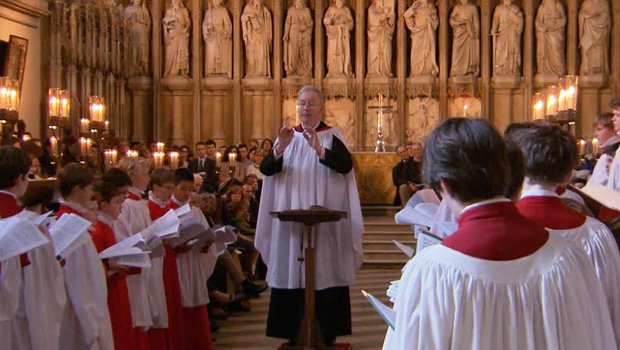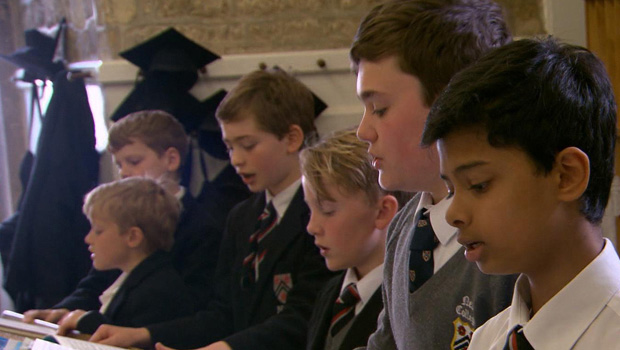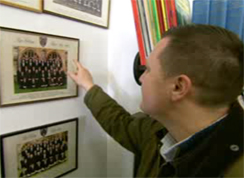Angels hitting the high notes
The Choir of New College Oxford is beloved in England, and with Martha Teichner now we'll see --and hear -- why:
For more than 600 years, the sound of angels singing -- actually, small boys - has filled the chapel of New College, part of the University of Oxford. The choir was founded in 1379, the year New College was new, more than a century before Columbus discovered America.
This is a story about time -- about what changes and what doesn't, what is of the moment and what seems eternal.
For a boy of five, there is no such thing as history ... only a way of life that might begin this way, with a lesson from Edward Higginbottom, leader of the choir for 38 years.
Each spring, parents and children are invited to see what it's like to be a chorister. They literally try it on for size: tiny boys get into cassocks and go with choristers to sing in the chapel.
"The real thing that makes a difference is this child of five gets to put on a cassock and stands alongside one of the boys here and sings, as best they can," said Higginbottom. "Or, you know, opens their mouth and pretends to sing."
"I can remember when I first put it on, sort of thinking, 'I can't really breathe in this,'" said Tom. "And then I started breathing very deeply and I sort of got the hang of it."
Since its founding, the choir has always had 16 boy choristers, plus several more in training, who sing alongside the men. Only four new boys are chosen each year to replace the four who age out and leave at 13 (or earlier, if their voices have changed).
Teichner asked Oscar, "When you auditioned, was it scary?"
"My legs were almost between liquid and solid," he laughed.
And what was it like when he heard he'd got in? "I was, oh my gosh, speechless!" Oscar said.
And for Joseph, "It's just become a part of me really. I do singing. We practice a lot. But when you see the results you get, the rewards sort of cancel out all the hard work that you have put in."
Hard work, indeed. Their lunch breaks, their afternoons, their weekends for as long as six years are spent learning music theory and the music they will sing at evening services in the chapel, as well as on tour around the world. The choir has also recorded extensively.
As long as the choir has existed, New College school has existed. But the choristers live double lives, as normal boys and as professionals. Like characters in a Harry Potter film, putting on their caps and gowns, leaving their classmates behind for the rigors of the song room.
Teichner asked, "There's no sense that they're losing their childhood?"
"Well, this is their childhood," Higginbottom replied. "I mean, what richer childhood could you have? They're still doing all the things kids do. They're still playing their football, they're still messing around."
And even singing for fun, before it's time to work again.
For the time they are here, their days are spent filling the medieval buildings with music. While gargoyles stay and stare, boys have come and gone. On December 10, 1738, chorister William Hicks carved his name.
"You can see that just hundreds and hundreds of initials carved in," said "Sunday Morning" producer Jon Carras, who -- 250 years after Hicks -- left HIS mark.
He pointed to himself in a group photo from 1987-88. "Here I am, right in the middle in the front row. I have left a little piece of myself here. But the other thing is, this place stays with me every day."
Each year brings its regular rites of passage, its beginnings and endings. At the end of the school term, new boys were formally inducted -- and Edward Higginbottom, a titan of British choral music, retired.
But he's not exactly leaving. Part of an extraordinary six-century history, a sculpture of him will stay, and stare, as boys come and go.
"You get a lot back," he told Teichner. "And you can find moments of beauty and intensity that mark you for life. Special moments. That's what I go away with: enriched and I hope it's what touches them as well."
Asked to describe their sound, Higginbottom replied, "Sometimes spun steel, sometimes soft tissue."
For more info:


